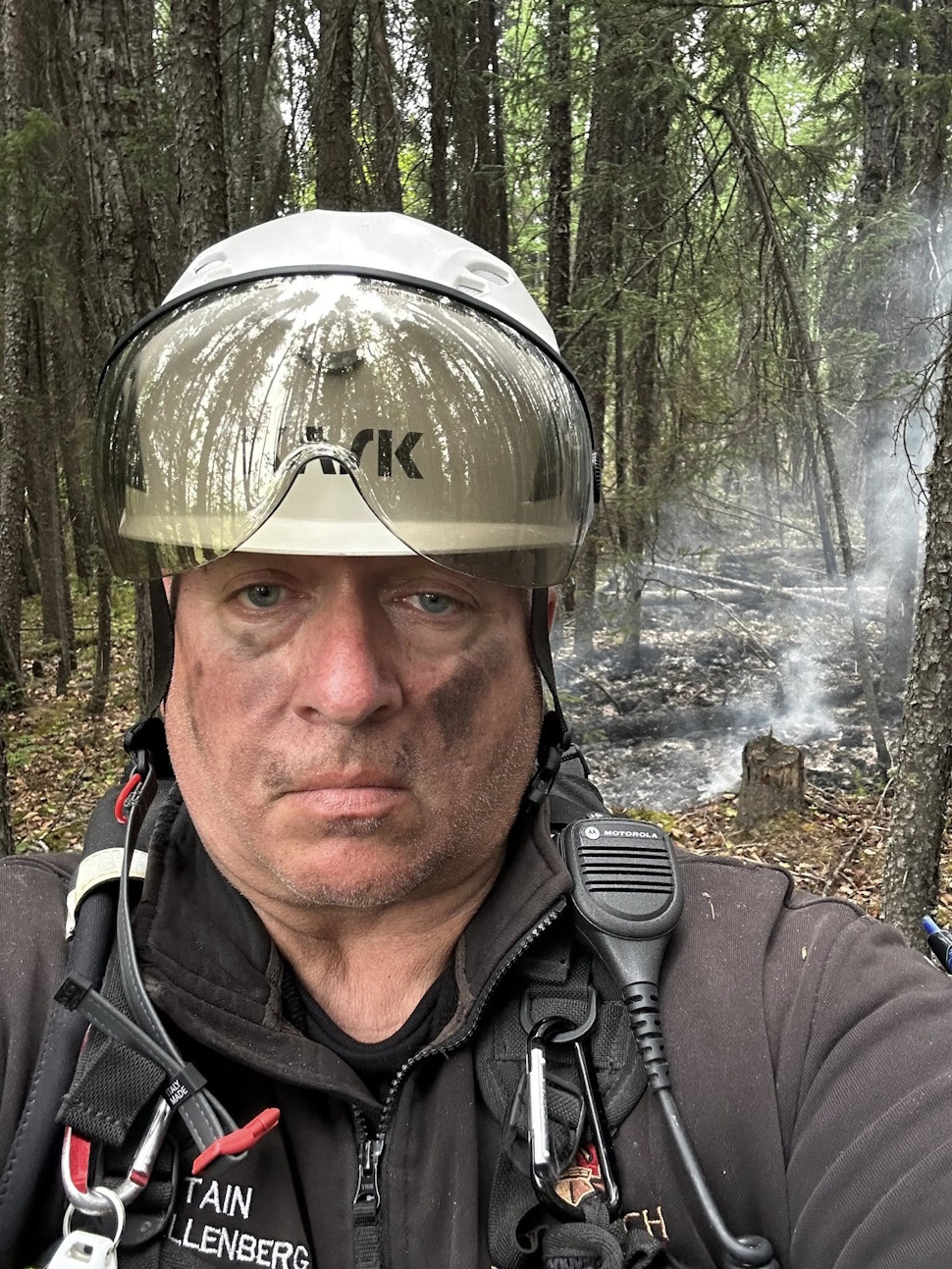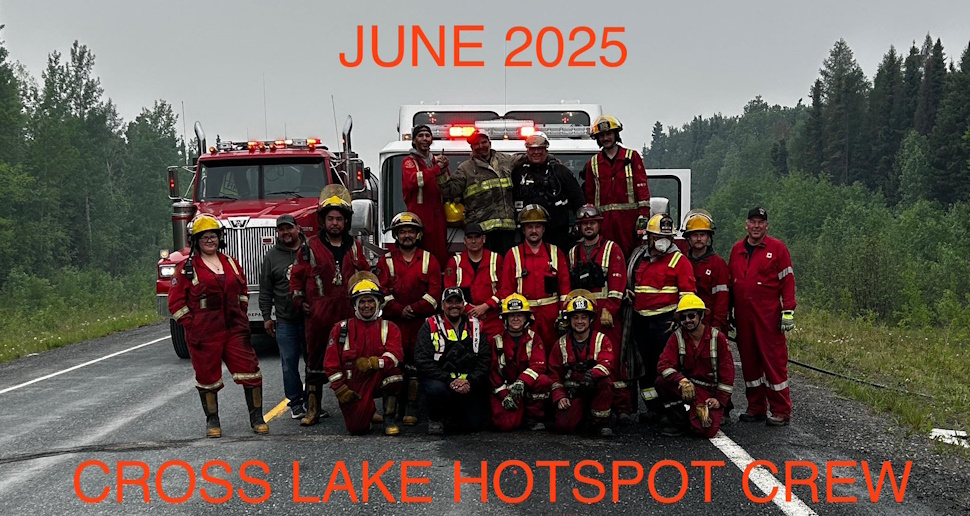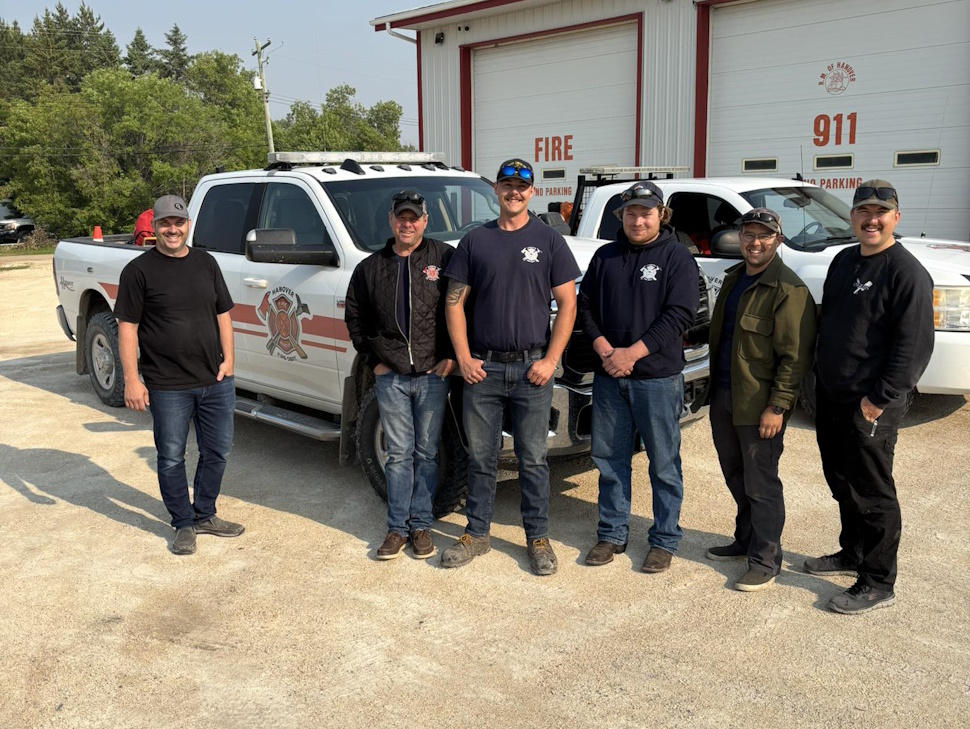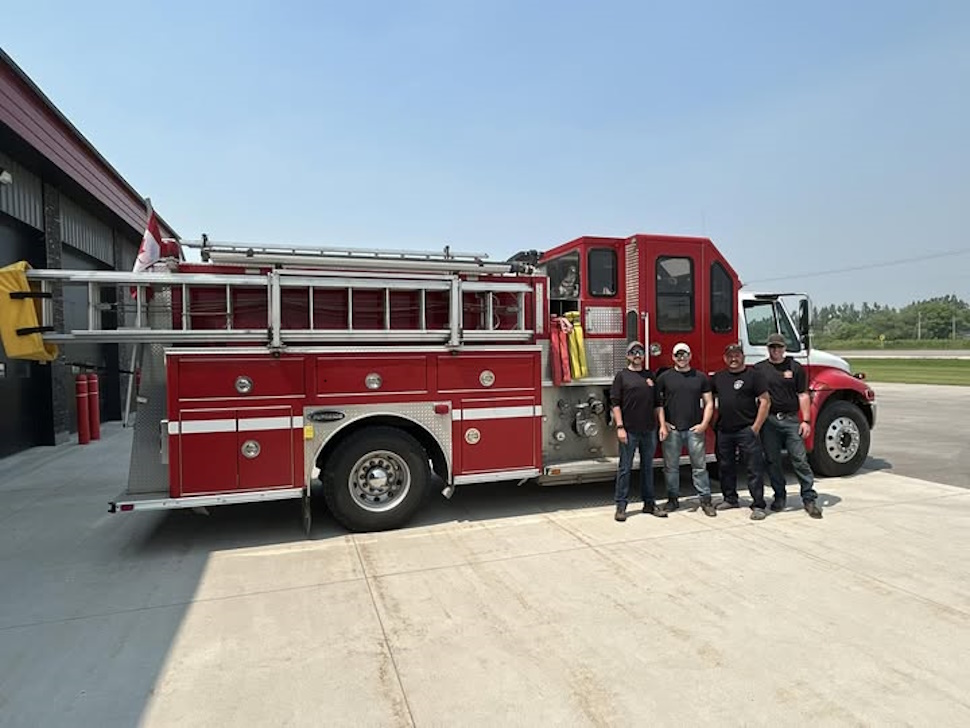As wildfires in northern Manitoba continue to burn and cause many to evacuate, firefighters in other parts of the province are stepping up to provide support.
Trevor Schellenberg, Assistant Fire Chief for the City of Steinbach, says the Manitoba Office of the Fire Commissioner (OFC) issued a call for help to municipal fire services across the province.
“Myself and a crew of four went up to Cross Lake last week Thursday I believe. We returned home yesterday. They had us performing a bunch of duties there.”

Schellenberg says that their role in Cross Lake began primarily as support.
“Along with our members, we took one of our engines as a pumper, we patrolled the community in the event that embers came into the community and caused any structure fires and things like that.”
Later, their responsibilities shifted, and they began working directly with local Cross Lake fire crews.
“We were put together with them as a hotspot crew to work outside of the community on the fire that had jumped one of the highways. So, we weren't fighting the big flames, but we were kind of coming in as a cleanup crew, so to speak, to work on the hotspots to avoid any of the embers jumping over the highway and causing further wildfire on the other side and the unburnt forest.”

Schellenberg says the opportunity to help was meaningful for the Steinbach team, especially given the appreciation from the community.
“They mentioned it over and over again how much they appreciated everybody coming in to help their community, and that's what we're there for. We want to be able to help. We want to be able to stand alongside them and help them to protect their community from the onslaught of any wildfire getting in there.”
![]()
The Hanover Fire Department also sent six members to Cross Lake to assist with the fires.
“They were gone for about five days,” says Fire Chief Paul Wiebe. “They were helping with various paths along with other members of the National Fire Service from other communities and jurisdictions from the south that aren't affected, so there are others besides just Hanover that sent members and equipment up to assist.”
Although the firefighters are stepping away from their jobs and families, being able to help means a great deal to them.
“I think most of our guys would love to go and would take the opportunity if they could. All of our members are paid on call, so they all have jobs. So, what they are doing is essentially using up their vacation time and their days off to go up and do this. It's a lot of sacrifice from our guys.”
Despite the difficult circumstances, he says the experience is also valuable.
“They make a lot of friendships out there and I think it's really important that we're all doing the same thing in our communities. We're all giving a lot of ourselves and a lot of our family’s time, so I think it's important that we connect with one another and that's what is happening out there and working together. I think it's really been a positive for the fire service.”

The La Broquerie Fire Department is another southeastern crew contributing to the fight. They’ve already supported wildfire efforts in the RM of Piney and have now sent five members to Flin Flon.
Chief JC Normandeau says helping out in these situations is essential.
“You definitely go help out when you can because when it's your turn, you can see all the people that come and help you. So definitely reciprocal but it's never fun to see the magnitude of fires that we got now.”
Like Wiebe, Normandeau is grateful for the members that sacrifice their time.
“It's huge that the guys can take time off work and the big thank you to their employers and also their wives or their partners that they're allowed to go to Flin Flon for four or five days.”
While La Broquerie currently has no additional deployments planned, Normandeau says they will be ready if they get the call.
He says it was a memorable learning experience for the crews.
“It's definitely an eye-opener and a great experience for the guys. It's definitely a challenge, probably different spectrum of fires that we deal with the rurally here in the municipality. Overall, it was a great experience for them, therefore, lots of work and long days.”
With files from Kenton Dyck

